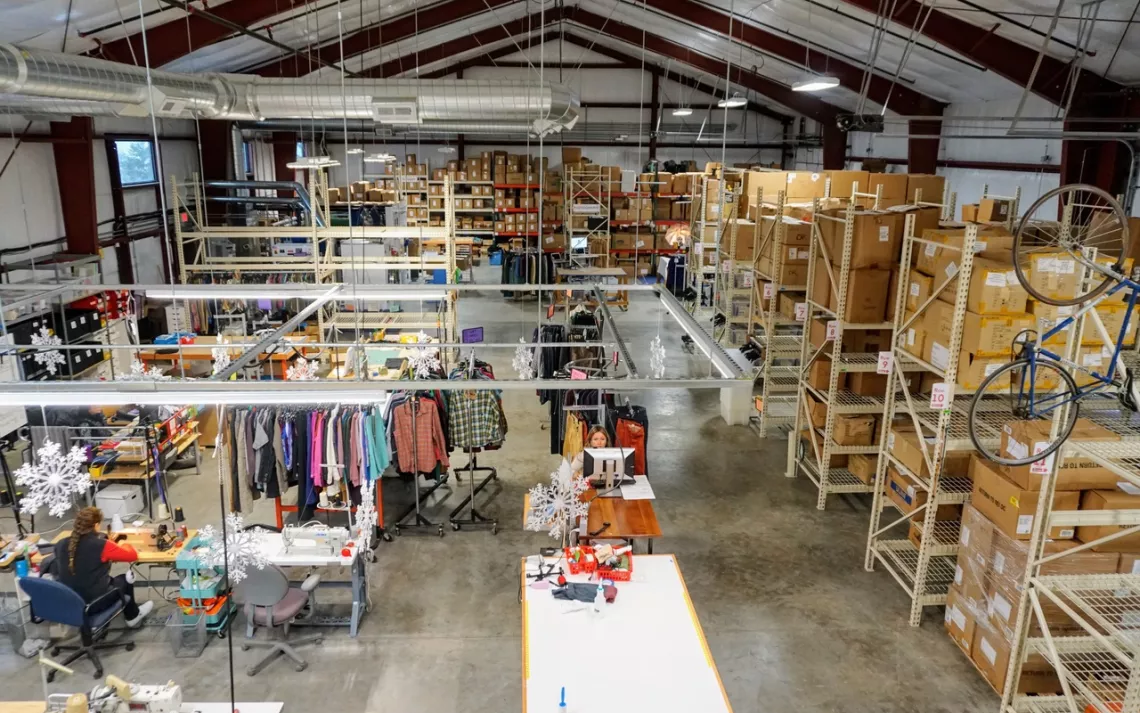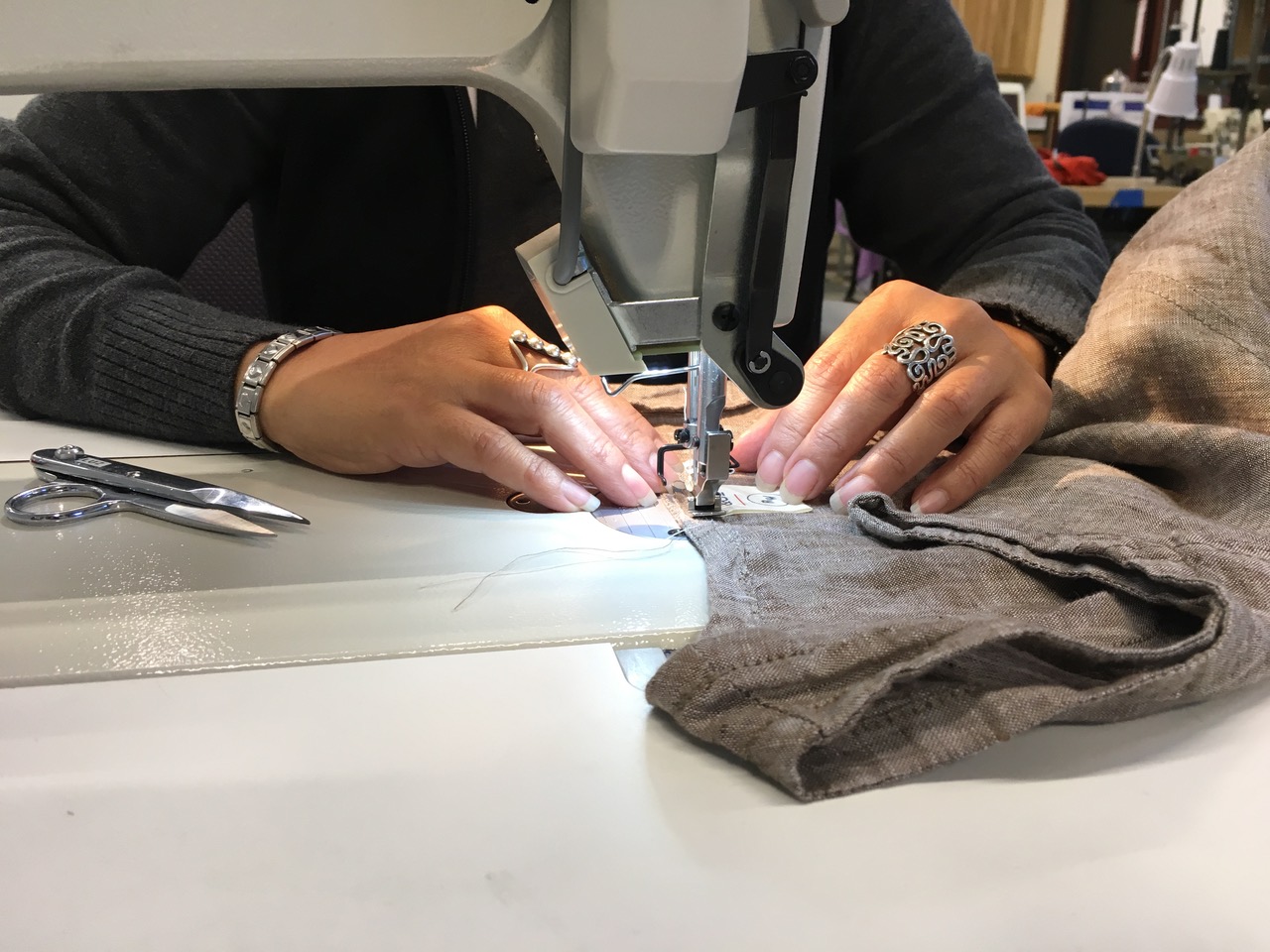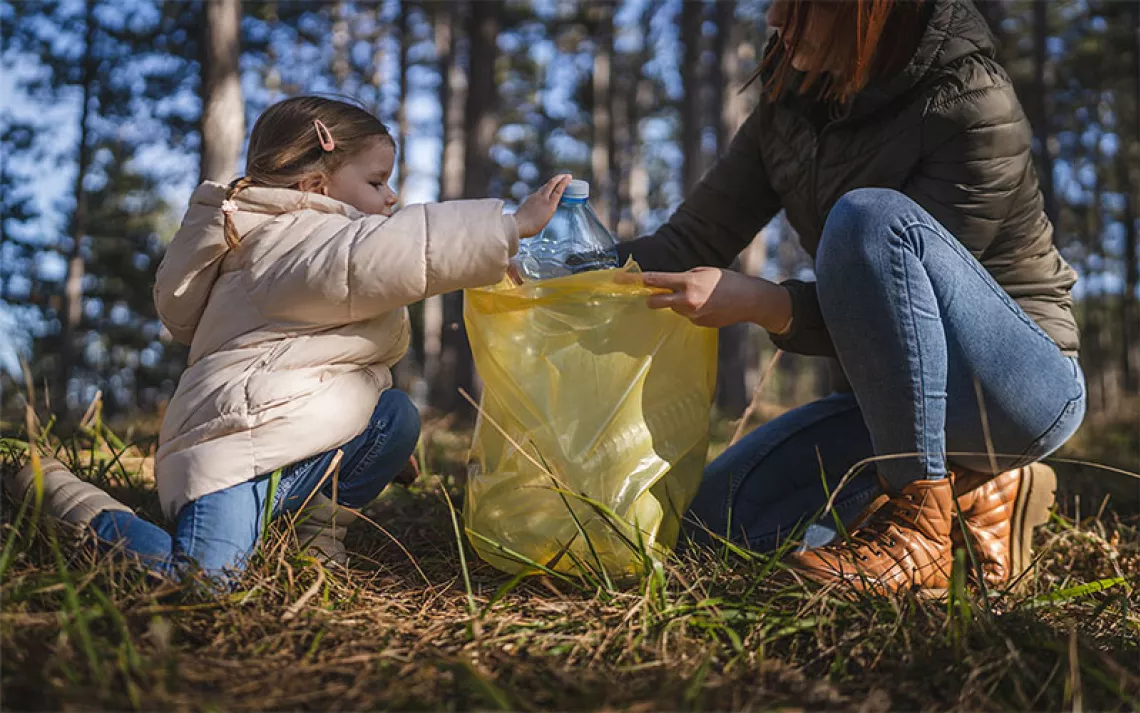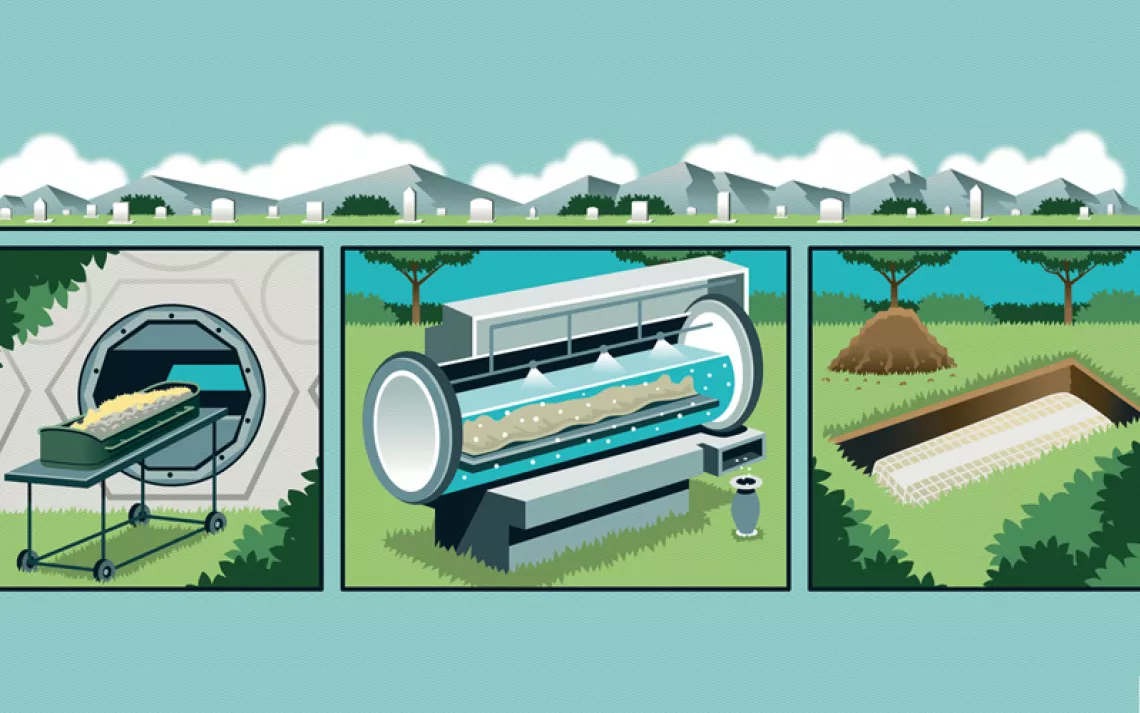Outdoor Apparel Groups Push for a New Culture of Renewal and Reuse
Companies are embracing the circular economy—a boon for Earth and wallets

The Renewal Workshop, a new Cascade Locks, Oregon-based start-up that repairs and refurbishes lightly damaged outdoor apparel, and resells it online at discounted prices. | Photos courtesy of the Renewal Workshop
Landfills are filling up fast, and the clothing on our backs is partly to blame. According to the nonprofit Council for Textile Recycling, the average U.S. citizen disposes of 70 pounds of clothing and other textiles each year, while only 15 percent of all used textiles are donated or recycled into other products. Sure, there’s a growing secondhand market, but what about the clothing, especially outdoor recreation pieces, that show too much wear and tear for consignment stores or even thrift shops?
Enter the Renewal Workshop, a new Oregon-based start-up that repairs and refurbishes lightly damaged apparel from outdoor industry brands and resells it online at discounted prices. The company directly diverts clothing from landfills while serving a price- and ethics-driven market.
“Just because something is missing a button or snap or has a hole doesn’t mean it can’t be used again,” reasons cofounder Nicole Basset. For the environment, she adds, “using something over again is the greatest thing you can do.”
The company’s e-store launched February 2, but the idea’s been in the works for some three years. Basset, a former Patagonia and Prana employee turned sustainability consultant, noticed an uptick in client interest regarding apparel’s post-consumer path. “Not a lot of businesses were looking at how to solve this problem from a business and a sustainability perspective,” she says. “It was mostly [handled through] charity donations, with a lot of clothing ending up overseas.”
Basset and cofounder Jeff Denby, who launched the organic-cotton apparel company Pact, realized an opportunity to work with small- to mid-size outdoor brands wishing to go beyond straight-up clothing donations—without the added expense and logistics of managing a clothing-renewal program in house. “We want to see the entire industry change,” Basset says. “We can’t rely on brands doing it themselves. And by working with multiple partners, we can help aggregate and accelerate this change.”
Taking inspiration from Eileen Fisher’s Green Eileen and Patagonia’s Worn Wear programs, both of which repair and clean company products for resale, Denby and Basset set up shop in a renovated building along the Columbia River in Cascade Locks, Oregon. Currently, six brands work with the Renewal Workshop—Prana, Ibex, Mountain Khakis, Toad and Co., Indigenous, and Outerknown (recently started by pro surfer Kelly Slater)—and Bassett says more are likely to come on board within the next six months. These brands send in pallets of apparel—customer returns, items damaged at stores or in manufacturing, and sometimes overstock—which is then repaired as needed, put through a waterless industrial cleaner, and relabeled.
With prices ranging between 25 to 30 percent off retail, the Renewal Workshop isn’t offering screaming deals, but the intention has more to do with philosophy than profit. “It’s important that we are not trying to devalue product to a clearance-like sale,” notes Basset. “We’re trying to help people build value into what they buy.”
That value-added approach is a draw for many, including wool apparel maker Ibex. Says the brand’s vice president of marketing Keith Anderson, “The biggest thing for us is that they are taking merchandise that was otherwise unsellable and putting it back into the consumer stream. It always tugged at our heartstrings when we saw a garment that had to get recycled because it had a stain or a tear or blown-out zipper.”
Partnering with the Renewal Workshop also offers something of a marketing boon, showcasing overall product quality and longevity. Over the next six months, in fact, Ibex plans to incorporate its partnership with the Renewal Workshop into a direct message to consumers about value and sustainability. “We want to say, ‘Please don’t just throw it away; there’s more to be done with it,’” says Anderson. “We’re in a circular economy now, providing life for the investment, time, and care we’ve put into this garment. There’s real capital that’s been invested, and to throw it away is a shame.”
 Other outdoor companies are already innovating consumer incentives to encourage recycling and reuse. Royal Robbins's Rewear Program, for instance, which launched in 2016, encourages consumers to send in used clothing in exchange for a discount coupon. Those items in top shape are resold, while the rest go to I:Collect, a global company that also works with companies like H&M, Levi’s, and The North Face to donate used clothing, and to repurpose textiles into other materials, like cleaning rags or insulation.
Other outdoor companies are already innovating consumer incentives to encourage recycling and reuse. Royal Robbins's Rewear Program, for instance, which launched in 2016, encourages consumers to send in used clothing in exchange for a discount coupon. Those items in top shape are resold, while the rest go to I:Collect, a global company that also works with companies like H&M, Levi’s, and The North Face to donate used clothing, and to repurpose textiles into other materials, like cleaning rags or insulation.
Patagonia’s Worn Wear program, introduced in 2013, repairs and cleans more than 45,000 customer-owned garments annually in Reno, Nevada, and also at smaller facilities around the world. What’s more, the company has just announced plans to sell restored clothing and gear—donated by customers, in exchange for merchandise credit—on a dedicated website set to launch this summer.
Meanwhile, Basset and Denby have an even greater goal—fiber-to-fiber recycling, which they say is the missing link in creating a truly circular system. Basset explains that while infrastructure exists to recycle cans or glass, for example, into new versions of themselves, there’s currently no practical method to reclaim textiles in the same way. “A huge technological shift has to happen for that come into play,” she says.
When that shift does occur, the Renewal Workshop is likely to help make it happen. Says Ibex’s Anderson of his brand’s decision to partner with the young company, “What really drove it home for us is their passion, and their vision.”

Sign up to receive Sierra News & Views
Get articles like this one sent directly to your inbox weekly.
With this action you affirm you want to receive Sierra Club communications and may vote on policy designated by the Sierra Club Board.
 The Magazine of The Sierra Club
The Magazine of The Sierra Club



